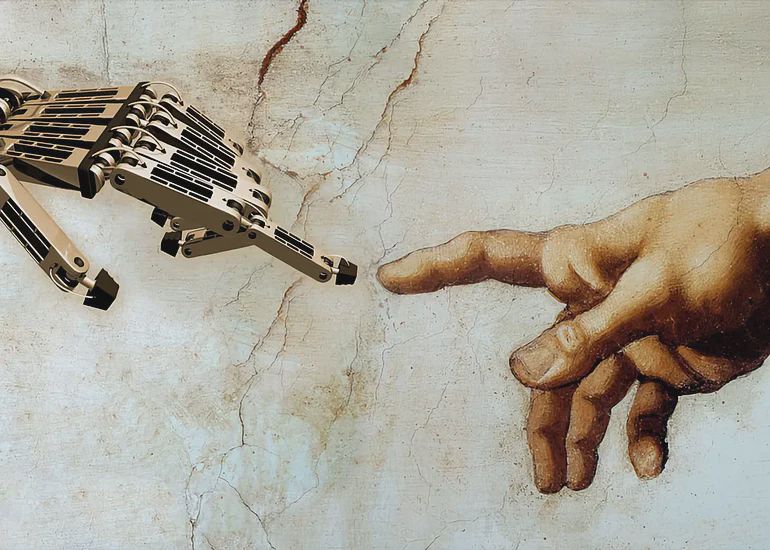What is a "Truly Ethical" Artificial Intelligence?
Antonio Casilli talks about an end-to-end approach to responsible and humane technological systems.

January 25th 2022
- 17:00 – 18:00 CET
-
This is an online-only event.
See description for details.
On This Page
This is an online event. Click here for details
- Speaker: Antonio Casilli, School of Telecommunications Engineering, Polytechnic Institute of Paris, France
- Moderator: Enrico Nardelli, Tor Vergata University of Rome, Italy
Abstract
Since 2015, an increasing number of ethical AI guidelines have been published. Despite their common goal, they leverage largely divergent values and categories. Moreover, ethical AI guidelines display a strong alignment with corporate interests and emphasize technology’s deployment. In order to develop an end-to-end ethical approach to AI, we must take into account the conditions of production of the data used to create and market artifacts. After analyzing the “mineralogical layer” of intelligent technologies (ie. the use of rare minerals embedded in devices) and the environmental costs of producing increasingly large models, we focus on the geography of the platform labor necessary to train, verify, and sometimes impersonate AI systems. The global distribution of AI companies (based in higher-income countries) and that of data labor (located in lower-income countries) reproduce legacy global inequalities in terms of wealth, power, and economic influence.
About the Speaker and Moderator
About Antonio Casilli
Antonio A. Casilli is full professor of sociology at Telecom Paris, the school of telecommunications engineering of the Polytechnic Institute of Paris, and an associate researcher at the École des hautes études en sciences sociales (EHESS, School of Higher Studies in Social Sciences). He coordinates the research team DiPLab (Digital Platform Labor) and is one of the founders of INDL (International Network on Digital Labor). His most recent books include: Waiting for Robots. An inquiry into digital labor (University of Chicago Press, forthcoming); Trabajo, conocimiento y vigilancia (Editorial del Estado, 2018); Against the hypothesis of the end of privacy (with P. Tubaro and Y. Sarabi, Springer, 2014). He served as the editorial adviser for “Invisibles – Les travailleurs du clic” (France Televisions, 2020), a documentary series based on his research. His work is regularly featured in international media (Le Monde, BBC, Repubblica, CNN, La Vanguardia, Hankyoreh Shinmun, Kathimerini, RTS, Época).
About Enrico Nardelli Enrico Nardelli is full professor of Informatics at University of Rome “Tor Vergata” and the President of Informatics Europe, the association representing Informatics university departments and research labs in Europe. He is member of the ACM Europe Council and represents his university in the Management Board of CINI (National Interuniversity Consortium in Informatics). Since 2014 he coordinates “Programma il Futuro”, a project run by CINI, in accordance with the Italian Ministry of Education, to introduce in Italian schools the basic concepts of Informatics as a scientific discipline. He is the director of the national laboratory “Informatics and School” of CINI and member of the Steering Committee of the “Informatics for All” coalition, advocating the introduction of Informatics as component of fundamental education in all schools in Europe.
His current research activity is Informatics Education and interdisciplinary study of Informatics systems and their social impact, within the Link&Think Research Lab and the CINI National laboratory “Informatics and Society”. Previously he did research in various fields of Informatics, from algorithms to databases, from geographical information systems to man-machine interaction and cooperative information systems. He also carries out dissemination activity towards the general public regarding Informatics education and the role of Informatics in the digital society. Website of Enrico Nardelli: www.mat.uniroma2.it/~nardelli
The Digital Humanism Lecture Series
Digital Humanism deals with the complex relationship between man and machine. It acknowledges the potential of Informatics and IT. At the same time, it points to related apparent threats such as privacy violations, ethical concerns with AI, automation, and loss of jobs, and the ongoing monopolization on the Web. The Corona crisis has shown these two faces of the accelerated digitalization—we are in a crucial moment in time.
For this reason, we started the DIGHUM Lecture Series, a new initiative with regular online events to discuss the different aspects of Digital Humanism. We will have a speaker on a specific topic (30 minutes) followed by a discussion of 30 minutes every second Tuesday of each month at 5:00 PM CEST. This crisis seriously affects our mobility, but it also offers the possibility to participate in events from all over the world—let’s take this chance to meet virtually.

